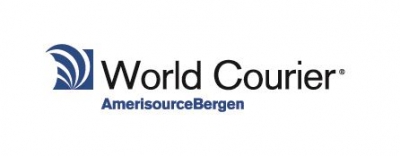How to identify, assess and prioritise regulatory risks and challenges
Section One: Orphan Drugs
With a small population of patients, orphan drugs face special challenges in delivering their life saving promises to patients who have great needs. There are difficulties making a timely and accurate treatment plan for patients with rare diseases. Not all healthcare providers who know how to diagnose many rare diseases. Not all providers are fully equipped to treat patients with rare diseases. Regulatory authorities face special challenges in reviewing and approving these therapies for their citizens' use. And it can be difficult to fund these rare diseases for patients, government backed payers, and private insurers. In this section Bob Glasgow of AmerisourceBergen will consider:
• What are the challenges in getting market access for patients?
• How can you prepare healthcare providers to know about the therapy and identify the right patients for the therapy?
• What challenges exist in getting the patient and various medical insurance schemes to pay for the therapy?
• What can be done to be proactive in monitoring side effects that can put patient safety risk?
Section Two: International shipping
With increasingly complex supply chain needs and an ever increasing emphasis on using risk as a major criteria in decision making, it can be difficult to prioritise each of the elements of international shipping, In this section Sue Lee of World Courier will consider:
• Contextualising risk for global shipping of Pharmaceuticals
• How to juggle the elephants that international shipping can throw your way?
• Treat Tolerate Terminate or Transfer – how to choose which for best results?
• Case study of a risk assessment with suggestions on what to include and, as importantly, who to include, in your processes
Orphan drugs, while life changing and in many cases life saving for patients, are fraught with challenges for biotech and pharmaceutical manufacturers. These range from locating the patients and their physician caregivers, to making sure the patients can pay for these therapies, to the overcoming of the numerous risk points in moving very expensive and in most cases temperature controlled goods to patients all over the globe.
This webinar looks at addressing these issues. The experienced speakers will guide you through the salient points and considerations when dealing with these challenges.
Presented by

Bob Glasgow,
Vice President, international: AmerisourceBergen Corporation.
Starting in 1985 in the pharmaceutical and biotech industry, Bob has worked with over 120 companies in the past five years to assist them in commercializing products in the US and Canada. His primary area of expertise is integrating distribution services with other relevant services to increase marketing share; manage regulatory and financial risk; and gain cost efficiencies for manufacturers. Bob has been with AmerisourceBergen for 11 years.
Prior to that, he was with what is now a part of McKesson for 11 years. Among other roles, he was president of HealthMart, a retail pharmacy franchise, for markets outside of the US and he was COO for a service provider of software and medical claims management to physician practices. He was also General Manager of a pharmaceutical wholesaler in Puerto Rico and he spent 9 years in management consulting working in wide range of industries. Much of this time was in Europe, Germany, Spain, UK, Sweden, Belgium, and France.
Bob has a BA from Penn State and an MBA from the University of Pittsburgh. He is married and has three sons, aged 24, 22, and 18.

Sue Lee,
Regional Quality Manager,UK, Ireland, Middle East and Africa, World Courier
Sue Lee has a background in microbiology and has worked for World Courier for over 20 years. In her role as Regional Quality Manager she is part of a global team working on quality issues, using a Risk Management based approach, and in the development of new and innovative systems for packaging, & temperature control she provides consultation and technical expertise to shippers, sponsors, and labs. She is a qualified DSGA for road and rail and IATA-trained for shipping dangerous goods including radioactives. Sue is also a member of the Institute of Freight Professionals (Grad).





